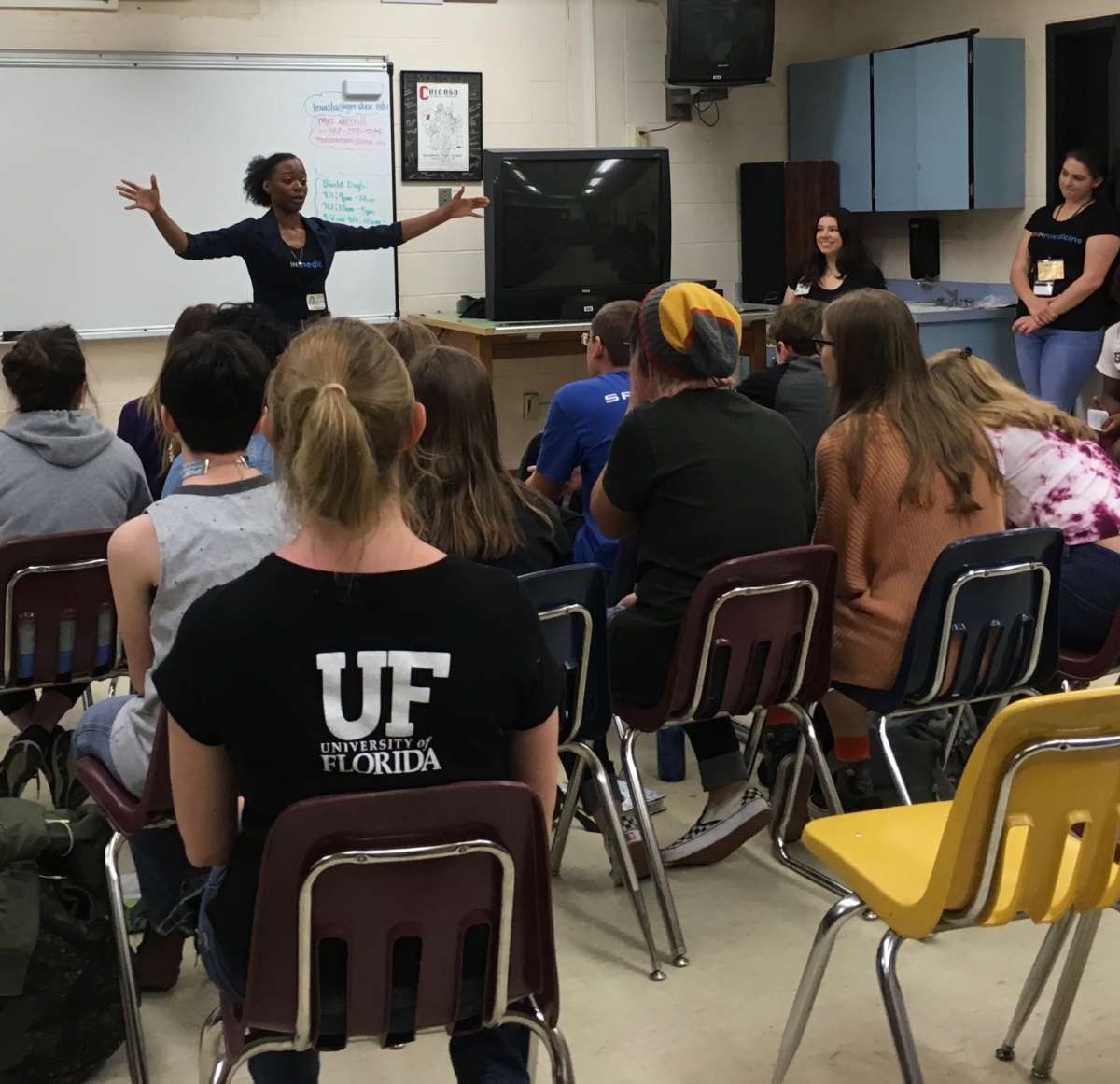From Distress to De-Stress: The Power of Visioning and Rehearsing Healthy Behavior through Theatre
Posted by May 03, 2017

Jenny Baxley Lee, MA, BC-DMT
“You are so brave and quiet I forget you are suffering.”
—Ernest Hemingway, “A Farewell to Arms” (1929)
I build bridges for a living. By asking good questions or offering a juicy creative prompt, I point to a potential link between two seemingly disparate ideas: arts and health. I then have the privilege of bearing witness to the flood of ideas, possibilities, solutions, and truths that flow freely when the bridge is built. This year’s “bridge”? Why do we have stress as human beings? How does stress, and constructive or destructive ways of coping, impact our health? Are there any positive gains from stress, if properly expressed and harnessed?
Susana Schrobsdorff reports in a recent article on teen mental health for Time magazine “about 30% of girls and 20% of boys—totaling 6.3 million teens—have had an anxiety disorder, according to data from the National Institute of Mental Health.” In response to the rise in adolescent mental health needs, the UF Center for Arts in Medicine Theatre for Health team launched a series of workshops in middle and high school classrooms to poll students regarding what stresses them out, what they do when stressed, and what happens to stress levels when we focus on our vision, or “long view.”
At the UF Center for Arts in Medicine, our history of engaging in arts in medicine in international and post-conflict settings has compelled us to turn our attention locally to bridge cultural resources and health needs right before our eyes. This year’s Theatre for Health workshops, entitled “From Distress to De-Stress,” were presented by me and my co-director, faculty member Jeffrey Pufahl, alongside artists in residence, creative arts therapists, and students working together as co-facilitators. The mandate of the workshop was to explore the face of stress and rehearse constructive and healthy ways of coping with stress.

Each session begins with a combination of theatre games and exercises, which introduce workshop content, followed by the creation of original scenes by the workshop participants. Participants then perform their scenes for one another and we consistently observe high levels of engagement in creation, performance, viewership of peer work and dialogue.
Workshop ground rules include absolute respect and confidentiality, the right to opt out of any activity or discussion, and most importantly, the invitation to play! The team carefully toes the line of treating difficult topics and issues with lightness, respect and withholding all value judgements. Our task is to present health information, to get adolescents thinking critically about their health, and to spur dreaming and visioning about the future as a tool to increase healthy behavior in response to stress.
Participants join in lively discussion sharing personal experiences of stress, and potential health impacts. Students reflect on, and teach their peers about, stress management in a very active and engaged way. Issues related to fighting, family conflicts, alcohol and substance use, and emotional regulation often emerged during the discussion. The workshop concludes with a Q&A and resource cards with local healthcare and mental health resources.
When asked “what is the purpose of stress?” teens shared with us that for them, stress is what happens when you are overwhelmed by balancing too many demands from school responsibilities to relationships to personal dreams. When asked what they do when they are stressed, the youth responded with a wide range of both constructive and destructive behaviors. When one group of students perform an “Awards Show” devised from writing about their personal visions, and performers receive their envisioned future Ph.Ds in Physics or the Nobel Peace Prize, the energy and emotion in the room is palpable.
Why theatre? From freshmen to seniors in high school, participants respond, “Theatre communicates. Educates. Empowers. It is a way to express yourself. It makes you feel something. It makes you feel connected. Theatre is an outlet and a way to cope.” Our Theatre for Health team couldn’t agree more. According to a recent study published by Jill Sonke and Virginia Pesata in their groundbreaking work exploring the impacts of arts on health communication in Uganda with global implications, the arts are an effective and efficient means of communicating health information. The arts are compelling: they engage individuals and groups on an emotional level, and this can translate to behavior change.
Having facilitated the workshop at six middle and high schools in the 2016-17 academic year, we have had unique encounters with approximately 400 students in Alachua County who engaged fully in theatre and dialogue. Bearing witness to the kinds of things that stress youth out, across gender, race, socioeconomic class, and differences we can’t always see, I am reminded that we are addressing health issues with some gravity. There is work to be done to get our school systems on board with innovative and comprehensive health education, both at a practice and a policy level. As for my vision, I’ll go on dreaming that one day, in my lifetime, the arts will be embedded as standard in all public health and healthcare practices to benefit the health and well-being of all individuals and communities around the world.





